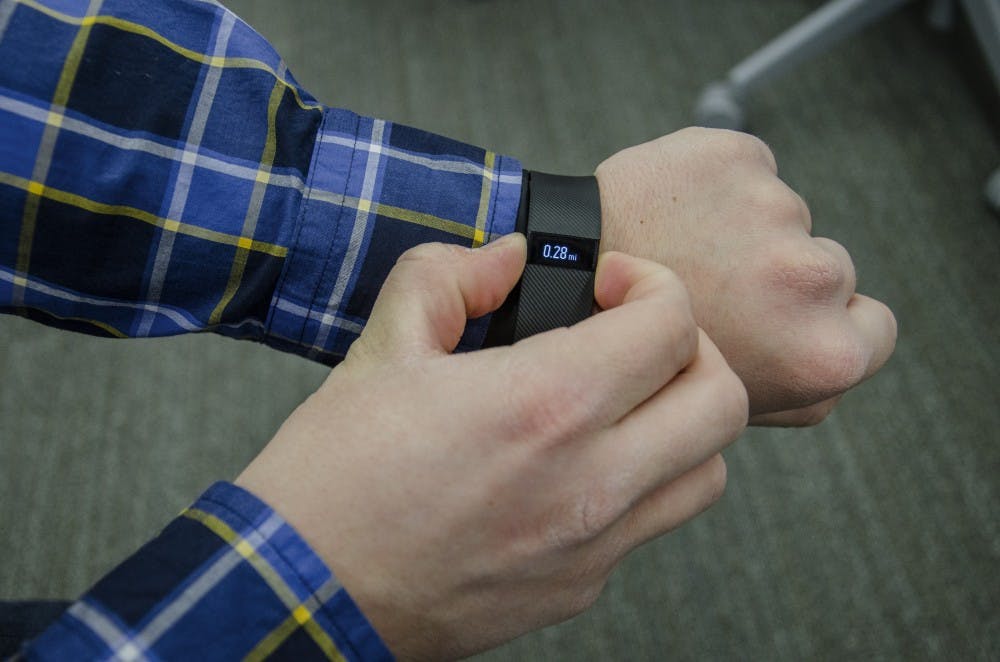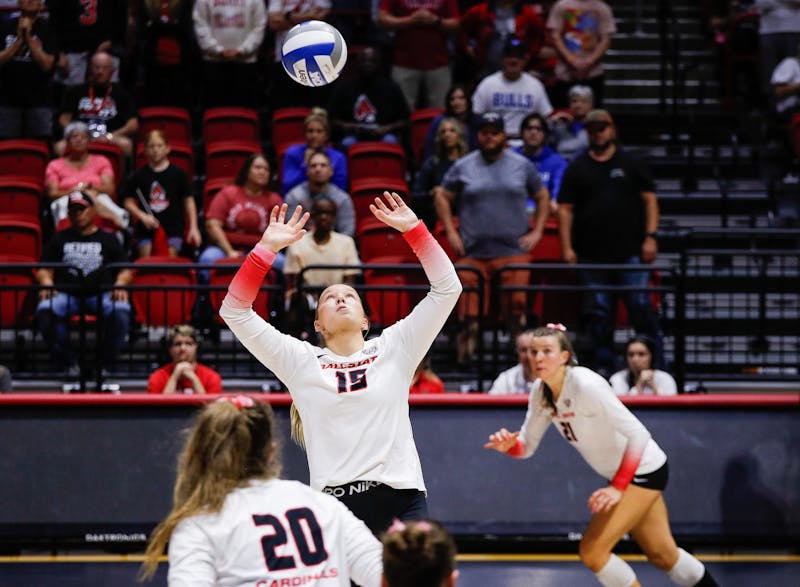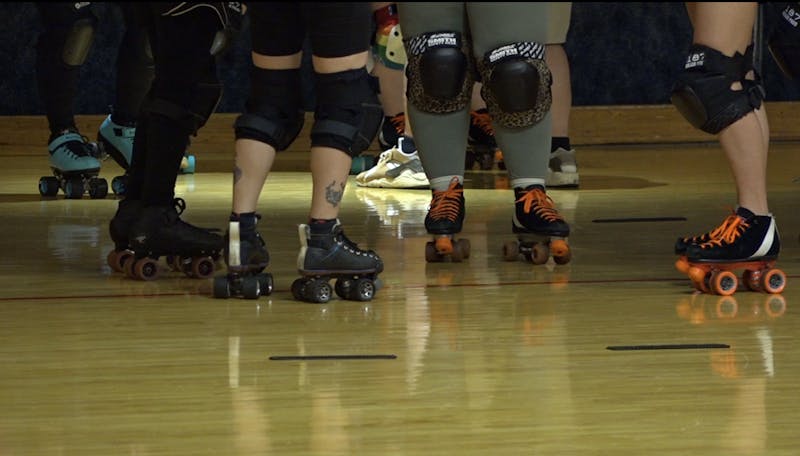A new study released from Ball State’s Clinical Exercise Physiology Program found that activity trackers are not always accurate.
Alex Montoye, a clinical exercise physiology professor who lead the study, examined 30 people doing various activities while wearing activity trackers, from using a computer to cleaning to jogging.
“We see all these people wear these devices, but at the end of the day, there is not really any information on how well they work,” Montoye said, “So if people are going to trust the data, we want to make sure that the data we’re getting from these monitors is actually accurate.”
The study began in the fall 2014 semester. At the time, Montoye said 3.5 million trackers were sold in the United States every year, a number that has likely grown higher since then.
The participants in the study did 12 activities in the human performance lab while wearing Fitbits. At the same time, graduate students were keeping track of the steps the participants were taking. They also wore a metabolic analyzer breathing mask to count calories, Montoye said.
The study found that the trackers work best for monitoring steps rather than calories. It is best to use them for activities such as walking or jogging, as they found there is only a one to two percent margin of error.
The trackers are not good for monitoring household or lifestyle activities such as cleaning, sweeping, or picking up stuff. There is about a 20 to 90 percent underestimation of steps.
Montoye said the trackers do not work well when a person does not have a distinct activity pattern.
“Our main conclusion that we wanted people to think about is you shouldn’t rely too heavily on these devices for an exact value for your physical activity,” Montoye said.
While the trackers may not be completely accurate, Montoye said this should not discourage people from continuing to purchase and use them.
“I think it is a really good motivational tool. I see people all the time buying these monitors, and they realize how inactive they were,” Montoye said.
Many of the trackers are inexpensive and can get people up and moving, which is a good thing, he said.
It isn't just the less expensive trackers that are inaccurate, Montoye said. The higher-end trackers from Apple, Samsung or Garmin would not be as accurate either.
“It’s all the same sensing technology, so I would anticipate they all work the same,” Montoye said.
However, many of them have features such as GPS, text messaging and heart rate monitoring, so if those features are valuable, then that is something to consider, he said.





The Daily News welcomes thoughtful discussion on all of our stories, but please keep comments civil and on-topic. Read our full guidelines here.